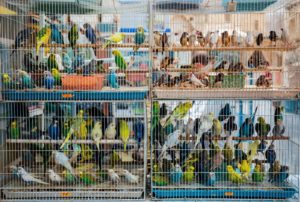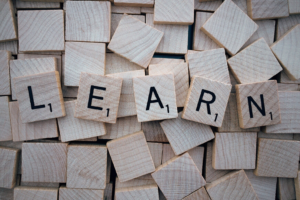I’m not big on the idea of “talent.” In fact, it puts a bit of a bug up my ass. Any time I think about why, I think back to my little brother. He’s a great guitarist, the kind who got the “talented” label slapped on his forehead by anyone who heard him play. That said, he doesn’t play that much anymore and claims, as many great artists do, that he was “never all that good.” So, at one point, I made the mistake of telling him that he should pick up the guitar again, that he was “insanely talented.”
His response? “Fuck talent, I worked hard to play like that.”
He was right, too. Thinking about it, I couldn’t remember an afternoon that he wasn’t practicing, a time he missed his guitar lessons, or a week that he wasn’t desperately searching for some new piece to improve his skills. I’d made the same slip-up that always put me a little on-edge: I confused hard work for talent. “Talent” seems—to me—to be a word people to describe the results of all the hard work they don’t know about. Especially where art is concerned.
Now, don’t get me wrong; there’s definitely an element of luck to an artist’s skill, opportunity being the biggest variable. The location and societal “caste” in which you were born both have huge consequences on the kinds of opportunities available to you. Some aspiring artists are lucky enough to grow up near places like New York City, where possibilities are endless, while others grow up in bum-fuck towns in Central California where the nearest library is two towns over. Likewise, those in higher castes have greater access to things like quality education, practice materials, medical care, and artistic communities, which can be non-existent or impossible to access for poor communities and those in disadvantaged or marginalized populations. Having these resources during your youth is important (especially libraries, in my opinion), and they give you a head-start over those that don’t.
Luckily, that head-start only changes the starting line. No matter where they started, every artist eventually hits a plateau where their “natural” skill won’t carry them any further if they keep treating it like a game. To pass that point, the artist needs to start putting in real hard work. They need to practice every day, to study the parts of the craft that they hate (and every artist in every discipline has parts of the art they hate), and to leap way outside of their comfort zone, often in the form of putting their work out to be criticized. Often, this decision adds this to the stressors of their every-day life and, suddenly, their art becomes work. That’s a rough prospect, but every art has this plateau; writers are often loath to review their work as a dispassionate reader, and I’ve met few musicians with the patience for music theory.
That’s where dedication comes in. Luck can be present here, too; maybe you had an upbringing that left you a little on the stubborn side, or maybe you lucked into a luxurious job or an economic background that allows you the financial stability to put more time into your art. But, even so—you still have to put in the work. No amount of money, genetics, or prestige will pay for passage past that plateau. You have to earn it. And even if you adore the craft, this kind of practice can suck shit, and forces you to make decisions about what you’ll keep in your life, and what you’ll cut to work on your art.
I learned this myself after college. While I’ve always loved writing, I started college as an art major. And, during high school, I followed my brother’s footsteps and got into music. First, the violin, then the bass guitar (kind of a weird leap, I know). But, in each of those arts, I hit a plateau. Art came first, then violin. In both cases, I reached a point where I wasn’t going to get better without huge investments of time and, more importantly, getting involved in aspects of the art that didn’t appeal to me. I stopped putting in work and my skills got stuck where they were.
But writing? I never stopped writing. I practice an hour and a half a day, minimum, constantly studying my weak points and working to turn them into strengths. And, while I still enjoy bass, the fact of the matter is that my time is limited and I’d rather put that time into writing. On that note, I’ve actually got another post about the importance of time to artists.
Despite all this, people still claim that artistic skill comes from some innate creative “spark” or “talent.” I doubt anyone’s skill is gifted to them at birth, and that’s probably untestable, anyway. Being born with an artistic interest is possible, but I figure that’s a result of your influences growing up, more than anything else. Having a good library or bibliophile around does wonders for a kid’s opinion of reading and writing—that’s why it’s so important to have solid arts programs and resources available for everyone at a young age.
But either way, neither of these things can turn a fun hobby into something powerful enough to make people stop what they’re doing and take notice. I’ve spent a lot of time around artists and there’s always been one common trait in the best of them: they put in the work.

